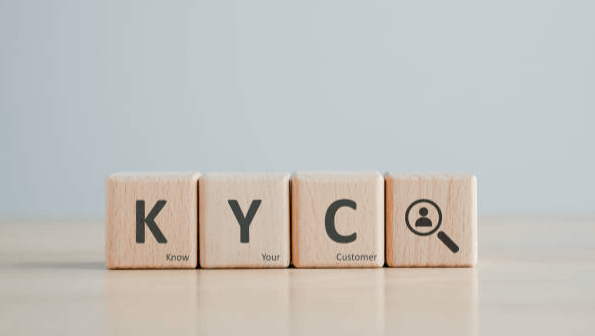5 Industries Where KYC Law is a Must

In the fast-paced and ever-changing digital world we live in today, companies face a wide range of risks, such as fraud, money laundering, and identity theft. These threats can be detrimental to both businesses and their customers. To protect against such risks, the Know Your Customer (KYC) law has emerged as a crucial tool for companies across different industries.
KYC is a regulatory process that serves as a protective shield for businesses. It enables them to verify and authenticate the identity of their customers. By doing so, companies can better understand who they are dealing with, making it harder for fraudulent individuals to slip through the cracks.
The main goal of KYC is to reduce risks and ensure compliance with the law. By thoroughly knowing their customers, businesses can mitigate potential dangers and create a safer environment for everyone involved. This process not only safeguards the companies but also provides greater peace of mind to customers, knowing that their personal information is being handled responsibly.
Industries Where KYC Law is Crucial
Banking and Finance
Banks and financial companies are subject to strict regulations because of the potential risks involved in handling money. KYC comes into play to help these institutions verify the identities of their customers. By thoroughly checking and confirming the identities of account holders, banks can ensure that they are dealing with legitimate individuals and not potential fraudsters.
Moreover, KYC also serves as a vigilant eye over monetary transactions. By monitoring these transactions, banks can identify any unusual or suspicious activities. If something raises a red flag, they can quickly step in to investigate and take appropriate action to prevent any potential abuse or illegal activities.
Healthcare
Patient privacy and data security are top priorities in the healthcare industry. By implementing KYC practices, medical professionals can verify the identities of their patients with greater confidence. This helps in preventing cases where someone might try to impersonate a patient to gain access to medical services or manipulate insurance claims for their own benefit.
Medical identity theft is a serious concern as it can lead to incorrect treatments, false medical history, and financial losses for both patients and healthcare providers. KYC acts as a safeguard against such incidents by ensuring that patients’ identities are thoroughly checked and authenticated before any medical procedures or access to confidential records take place.
Helping Real Estate money laundering by KYC Rules
Money laundering is a serious issue that can taint the reputation of the real estate industry and pose risks to honest buyers and sellers. By implementing KYC procedures, real estate professionals can carefully verify the identities of those participating in property transactions. This verification process helps in identifying any suspicious individuals who might be attempting to use real estate deals as a means to launder money.
By thoroughly checking the backgrounds of potential buyers, sellers, and investors, KYC makes it harder for criminals to exploit the real estate market for their illicit gains. It acts as a strong deterrent, dissuading money launderers from using property deals as a way to disguise and legitimize their ill-gotten funds.
KYC Verification for Online Marketplaces
When e-commerce platforms implement KYC procedures, they require sellers and buyers to provide verifiable information about themselves. This may include personal details, identification documents, and other relevant information. By doing so, the platform can ensure that all users are legitimate and not engaging in any deceptive practices.
KYC verification enhances the safety and confidence of online shoppers. When consumers know that the sellers they are dealing with have been thoroughly vetted, they feel more secure about their purchases and are less likely to fall victim to scams or receive counterfeit products.
KYC Standards for Gaming and Gambling
The world of gaming and gambling can be an exciting place, but it also attracts some risks. One of the major concerns is underage individuals attempting to participate in gambling activities. KYC protocols act as a protective measure, ensuring that players are of legal age before they can take part in any form of gambling. By verifying the identity and age of players, the industry can better control access to its services and prevent minors from engaging in activities that are not suitable for their age.
Identity theft is another serious issue that the gaming and gambling industry faces. Some unscrupulous individuals may attempt to use someone else’s identity to participate in gambling, which can lead to financial losses and harm to innocent people. KYC procedures help safeguard against such fraudulent activities by thoroughly verifying the identities of all players. This way, the industry can prevent unauthorized individuals from using someone else’s identity for malicious purposes.
KYC not only protects players and the industry but also promotes responsible gambling practices. By ensuring that players are of legal age and their identities are confirmed, gaming and gambling platforms can create a more secure and trustworthy environment. This encourages responsible participation and helps prevent potential harm to vulnerable individuals who might be at risk of falling into gambling-related issues.





